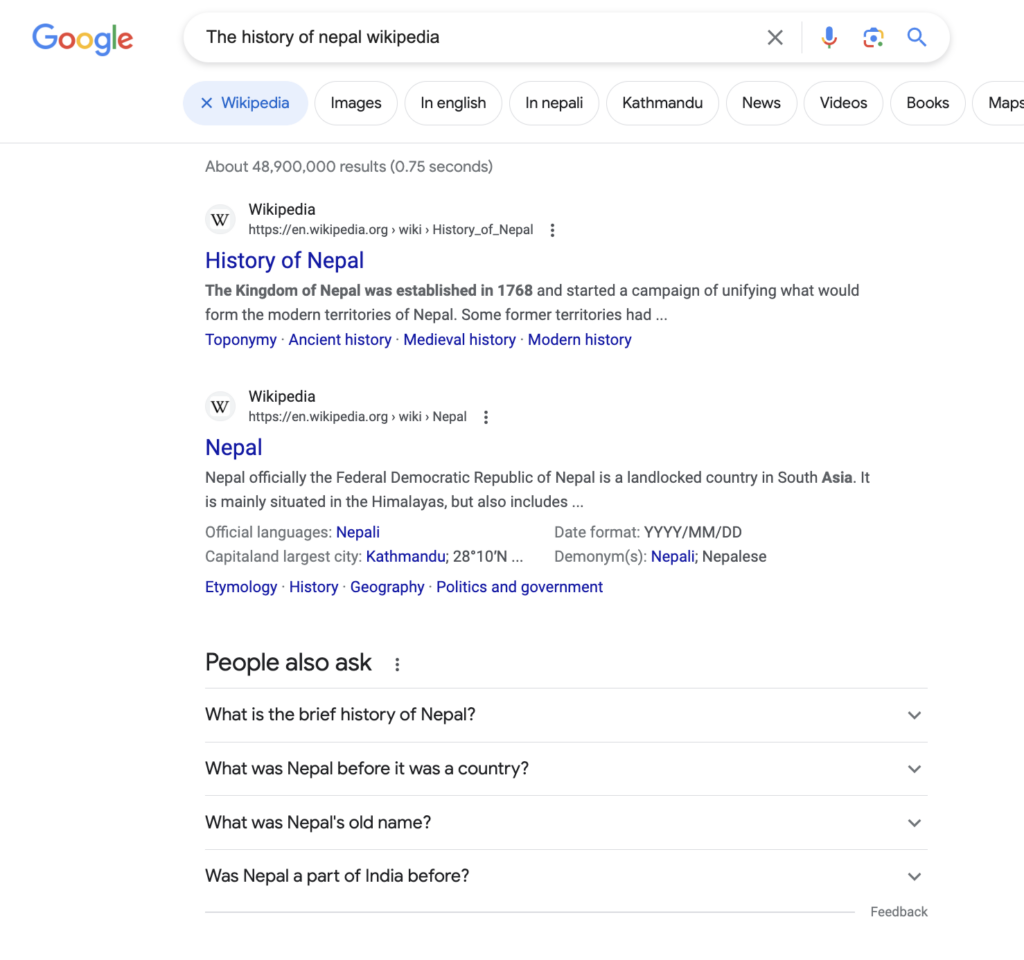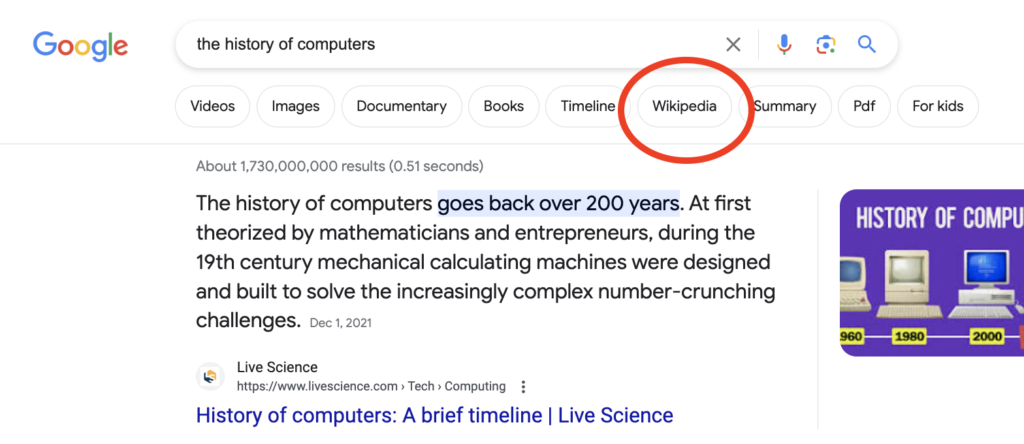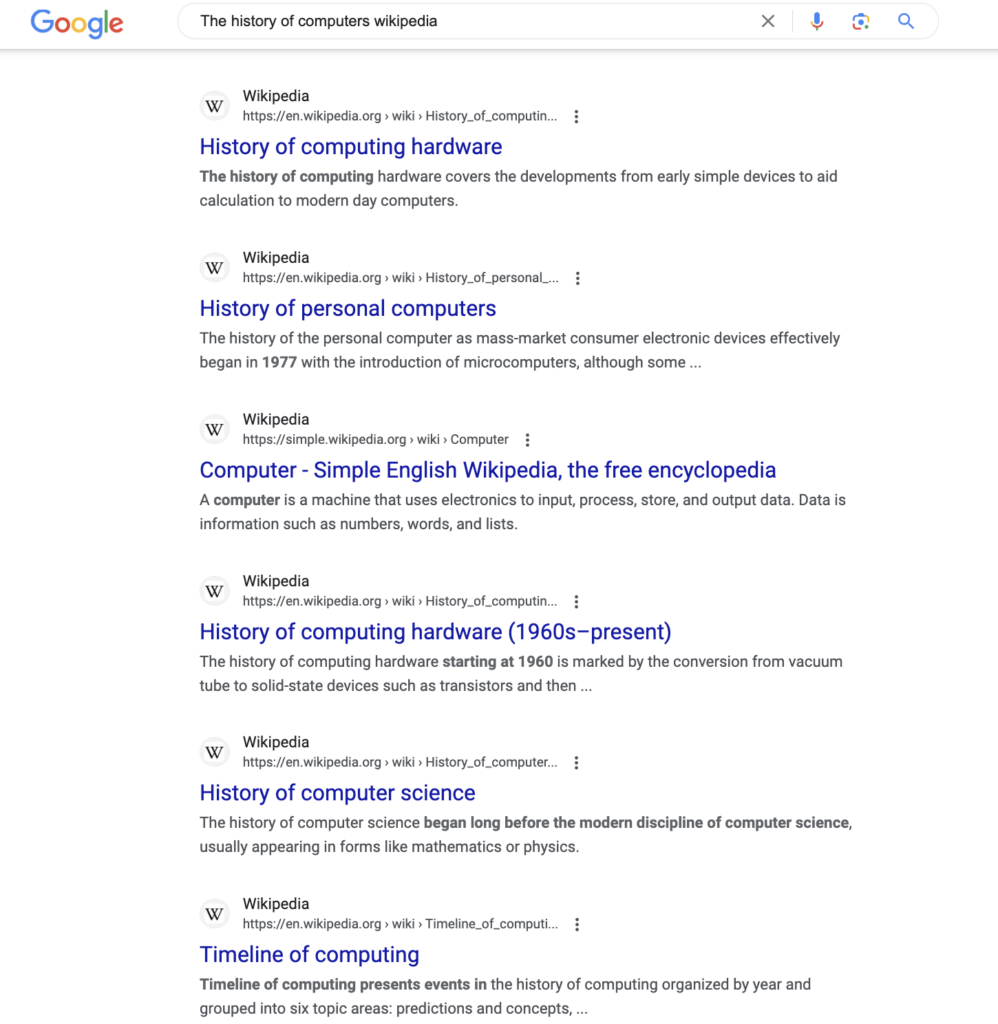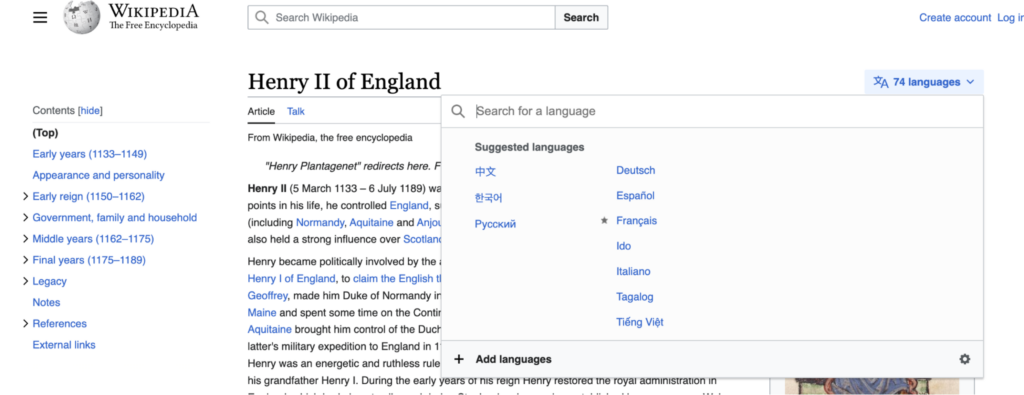Well, we’re more than halfway through the year and there’s almost more happening on Wikipedia than we know what to do with – almost, but not quite. Here’s a look at some of the major happenings of Wikipedia and why businesses need to care.
[A quick note: Mind the rules – as always when talking about Wikipedia, we have to add that Wikipedia is not a marketing platform. It does have influence on the corporate world as you will see below, but it is not the place for posting advertisements or other promotional content. With that reminder, let’s get started.]
Table of Contents
Wikipedia the “most important single source in the training of A.I. models”

A.I. is everywhere in 2024 and everyone wants to know how different chatbots and models know what they know. While we don’t have incredibly specific data, we do know that Wikipedia data and Wikipedia text is used to train A.I. and referenced to generate answers to queries. This article says, “While estimates on its influence can vary, Wikipedia is probably the most important single source in the training of A.I. models.”
The Washington Post worked with researchers at the Allen Institute for AI to rank the millions of websites used to instruct large language models. The top three most-used sites were:
-
- patents.google.com
-
- wikipedia.org
-
- scribd.com
Google Bard was trained using Wikipedia along with Common Crawl, The World Factbook, and conversations from across the internet. Bard also accesses and processes information through Google Search. Guess which website features prominently in Search? That’s right. Wikipedia. In one test, Google Bard was asked, “What is happening with Credit Suisse?” At the bottom of Bard’s answer there was a single cited source – Wikipedia.
DuckDuckGo announced a partnership with OpenAI and Anthropic to enhance its existing feature, “Instant Answer,” with A.I. To do so, the new DuckAssist tool will pull from Wikipedia and Encyclopedia Britannica to provide summarized answers to users in ‘natural language.’ DuckDuckGo limited DuckAssist’s sourcing to reduce the likelihood of the feature “hallucinating,” – aka, providing incorrect or made-up answers. Of course, only time will tell if DuckAssist will begin to mimic some of the more egregious personality traits of infamous Wikipedia editors, or be able to figure out how to remain more neutral. You can bet others will be watching and learning from this experiment
What it means for organizations
If your organization and related individuals are the subject of Wikipedia articles, the information in that article is not confined to Wikipedia. Whether someone uses A.I. to write a blog, answer a question, outline an article, or provide possible article topics, A.I. can decide to include you or not include you, based, in part, on what it’s learned from Wikipedia.
You don’t have control over how this information is used, but you do have the ability to review any relevant articles and see if they are factual, neutral, and up-to-date. If they aren’t, now is absolutely the time to learn how to edit and request edits to articles. If you don’t, you’re okaying that information being fed to countless A.I. generators and served to anyone who asks the “right” question.
Wikipedia “tab” in Google search bar


For certain searches, Wikipedia now appears as one of the tabs or filters right below the Google search bar. If you select ‘Wikipedia,’ you remain on the search results page, but are only shown Wikipedia articles.


What it means for organizations
This highlights the popularity of Wikipedia. Humans like Wikipedia, for the most part. They expect it to have answers for any query or to at least be a good jumping off point.
This is why Google is making it easy for people to access Wikipedia. Is that good or bad for your brand awareness? If the answer is bad, it’s time to start strategizing.
Wikipedia’s redesign makes it easier to access every existing language edition of a specific article
January 2024 was a big month for Wikipedia. It marked the debut of Vector 2022, a full redesign of its desktop page design and user interface. The Wikimedia Foundation explained the changes (designed and tested by 30 different volunteer groups from different countries), and how necessary they were to improve usability and readability to prepare Wikipedia for the next generation of global editors.
One of the changes is that the new design makes it much easier to access every existing language edition of a specific article.


What it means for organizations
There are more than 300 language editions of Wikipedia, which is more than twice as many languages as offered by Google Translate.
Articles can be different in every language edition in which they appear. It isn’t as if editors take the English version, translate it into French or Japanese, and then paste it in that language’s Wikipedia. Rather, these are unique articles. They may have similarities, but they can have different content, different sources, and different organizational headings and subheadings.
If an organization wants to ensure their Wikipedia presence is up-to-date, they need to review articles in every language edition. This is complicated because every single language edition of Wikipedia has its own set of independent editorial guidelines. Every new language demands its own highly individualized strategy, from finding localized sourcing to managing editorial discussions and international vandalism attempts.
The Online Safety Bill in the UK could block Wikipedia (but likely won’t)

In order to combat harmful online content, the Online Safety Bill introduces a number of legal requirements for companies and websites to follow. The Wikimedia Foundation has said that some of these “are counter to Wikipedia’s editorial guidelines and policies, as well as its privacy policy.” Specifically, Wikimedia said it will not require users to submit age verification because that would violate the organization’s commitment to collect minimal data about users. The Foundation is not the only one worried that the bill goes too far.
Some have suggested that Wikipedia and similar sites have a regulatory exemption and be considered “low risk” for harm because they provide a public good. If the government disagrees, Wikipedia would be inaccessible in the UK.
What it means for organizations
Most likely there is no cause for worry. All government parties have expressed a desire for a flexible, “future-proof” bill, and most experts believe an exemption will be provided for Wikipedia. However, considering this news alongside other recent headlines (like Wikipedia being blocked in Pakistan back in February), is a good reminder that Wikipedia is a global project, and one constantly subject to the whims of international law in all of its 300+ language editions.
What does Wikipedia mean to you?
For many people today, turning to Wikipedia is second nature. According to the IMS Institute for Healthcare Informatics, fifty percent of physicians use Wikipedia for information. Some college and university professors teach students how to properly use Wikipedia and how to edit and create articles.
As you can see above, Google’s clearly taken notice, as have most A.I. creators.
They’ve all said Wikipedia is important, reliable, and noteworthy.
What about you?
Let us know what you think. If you’re interested in monthly insights and action updates, sign up for our State of Wikipedia report.



